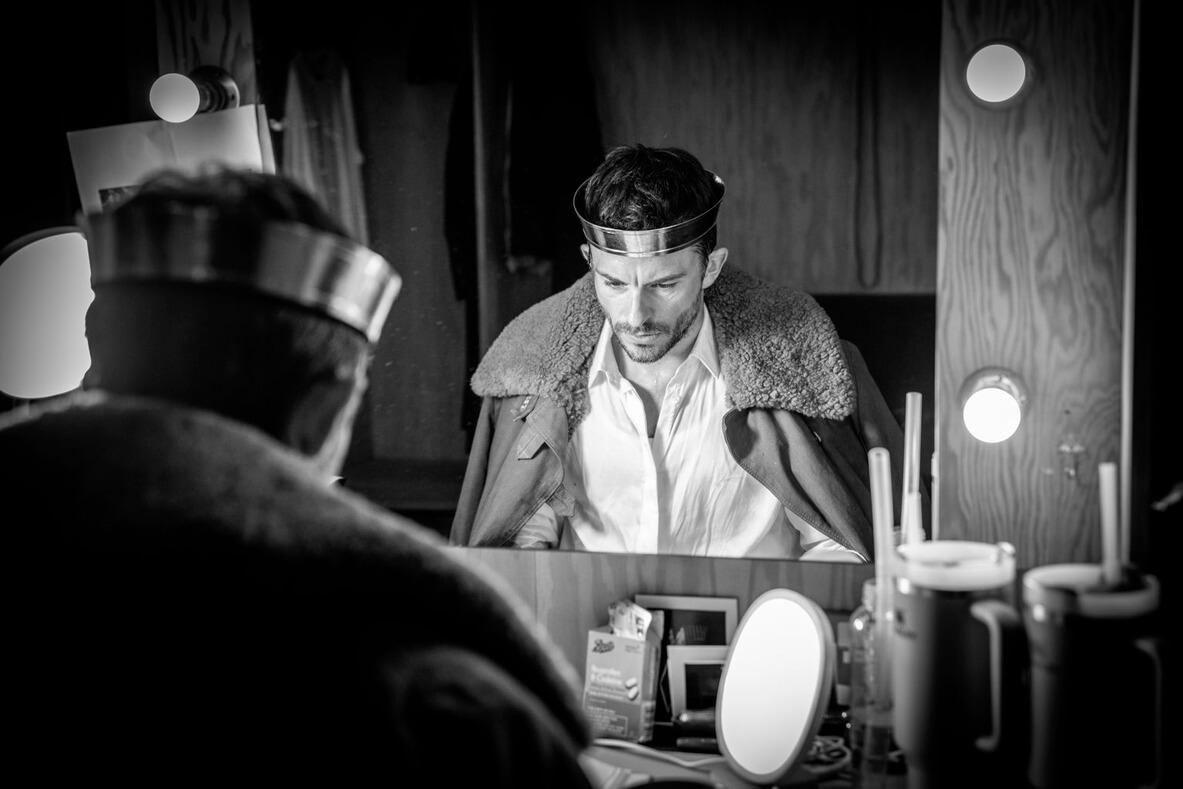This time around in director Claire van Kampen’s telling, we have André Holland (still a hot property after the Oscar success of Moonlight), cajoled into committing uxoricide by Mark Rylance (equally basking in Oscar glory following his Best Supporting Actor win for Bridge of Spies). But what mysticism binds these two and why must Desdemona(Jessica Warbeck) suffer such a terrible and heartbreaking fate at their hands?
If anything, this particular pairing demonstrates something of a confounding state - in terms of the disparity in ages which is possible from the vagaries of the text. Some have argued that as Othello’s perpetual lieutenant, Iago has been deliberately overlooked for promotion (as a necessity to perpetuate his physical proximity and friendship with an older and trusted advisor). Iago’s viperous resentment of this state and his allusion to the Moor’s sleeping with his wife (referenced within the first soliloquy) loosely explains his absorption with subversive manipulation and an over-arcing desire to exact a dreadful revenge. Scholars continue to mull over Shakespeare’s precise intentions, but whatever the truth, the play seems destined to continue being (literally) a game of two halves. The comedic levity of the first, always feels like a shockingly cynical lull in proceedings when compared with the desperate sadness of what follows the interval drinks. The imbalance is pronounced and the effect on audiences, always profound.
Iago through deception, convinces Othello that his beloved young wife Desdemona is untrue and has made him a cuckold through a dalliance with a military subordinate Cassio (Aaron Pierre cutting a dashingly impressive physical presence). It’s all a matter of the circumstantial placement of a prized handkerchief (which a modern audience should deem laughable), but the sinister whispering of fanciful fiction is enough to sway susceptible and unquestioning minds. Equate the handkerchief with a message on the side of a bus, and you’ll contextualise how powerful and dangerous malicious slurs can be, especially when individuals are willing to believe the worst, irrespective of tangible truth.
Rylance especially, knows how to deliver ascerbic asides better than any other stage actor working today and his timing in this production is perfection. Iago’s scene-setting comedic elements in the first half are delivered with exactly the right nuanced levity, and prove devastatingly effective in framing the dreadful events which later unfold.
The enraptured, standing throng, lapped-up the on-stage acknowledgment of real life seagulls overhead, and as usual everyone did their best to ignore the curse of noisy, 21st century jet planes above London. On one particularly intrusive occasion Rylance even managed to out-project a helicopter which seemed intent on ‘buzzing’ the auditorium. Stylistically and vocally, André Holland was marginally at odds with the remainder of the cast, but certainly not out of his depth. Everyone acquitted themselves with panache and the cast deserves to play before an attentive audience every evening. If only rustling packets of crisps and sweets were banned, that wish might be fully realised.

 Sheila Atim as Emilia and André Holland as Othello. Photo Simon Annand
Sheila Atim as Emilia and André Holland as Othello. Photo Simon Annand



 Upon entering the White Bear Pub I'm struck by the beauty of the pub's interior – more like an airy time capsule to a former golden age.
Upon entering the White Bear Pub I'm struck by the beauty of the pub's interior – more like an airy time capsule to a former golden age.